
- Chapter List
- Testimonials
- Join Luke Unfiltered
- Enter Luke Unfiltered
- Members Area
- Live Call-In Show
- Luke Unfiltered Forum
- Members Only Store
- Apocalypse Survival Training
- Travel & Escape Hacking
- Change Media University
- Member Support
- Edit Your Profile
Select Page

U.S. Supreme Court Says No License Necessary To Drive Automobile On Public Roads
Posted by Jeffrey Phillips | Jul 21, 2015 |

U.S. SUPREME COURT AND OTHER HIGH COURT CITATIONS PROVING THAT NO LICENSE IS NECESSARY FOR NORMAL USE OF AN AUTOMOBILE ON COMMON WAYS
“The right of a citizen to travel upon the public highways and to transport his property thereon, by horsedrawn carriage, wagon, or automobile, is not a mere privilege which may be permitted or prohibited at will, but a common right which he has under his right to life, liberty and the pursuit of happiness. Under this constitutional guaranty one may, therefore, under normal conditions, travel at his inclination along the public highways or in public places, and while conducting himself in an orderly and decent manner, neither interfering with nor disturbing another’s rights, he will be protected, not only in his person, but in his safe conduct.”
Thompson v.Smith, 154 SE 579, 11 American Jurisprudence, Constitutional Law, section 329, page 1135 “The right of the Citizen to travel upon the public highways and to transport his property thereon, in the ordinary course of life and business, is a common right which he has under the right to enjoy life and liberty, to acquire and possess property, and to pursue happiness and safety. It includes the right, in so doing, to use the ordinary and usual conveyances of the day, and under the existing modes of travel, includes the right to drive a horse drawn carriage or wagon thereon or to operate an automobile thereon, for the usual and ordinary purpose of life and business.” –
Thompson vs. Smith, supra.; Teche Lines vs. Danforth, Miss., 12 S.2d 784 “… the right of the citizen to drive on a public street with freedom from police interference… is a fundamental constitutional right” -White, 97 Cal.App.3d.141, 158 Cal.Rptr. 562, 566-67 (1979) “citizens have a right to drive upon the public streets of the District of Columbia or any other city absent a constitutionally sound reason for limiting their access.”
Caneisha Mills v. D.C. 2009 “The use of the automobile as a necessary adjunct to the earning of a livelihood in modern life requires us in the interest of realism to conclude that the RIGHT to use an automobile on the public highways partakes of the nature of a liberty within the meaning of the Constitutional guarantees. . .”
Berberian v. Lussier (1958) 139 A2d 869, 872, See also: Schecter v. Killingsworth, 380 P.2d 136, 140; 93 Ariz. 273 (1963). “The right to operate a motor vehicle [an automobile] upon the public streets and highways is not a mere privilege. It is a right of liberty, the enjoyment of which is protected by the guarantees of the federal and state constitutions.”
Adams v. City of Pocatello, 416 P.2d 46, 48; 91 Idaho 99 (1966). “A traveler has an equal right to employ an automobile as a means of transportation and to occupy the public highways with other vehicles in common use.”
Campbell v. Walker, 78 Atl. 601, 603, 2 Boyce (Del.) 41. “The owner of an automobile has the same right as the owner of other vehicles to use the highway,* * * A traveler on foot has the same right to the use of the public highways as an automobile or any other vehicle.”
Simeone v. Lindsay, 65 Atl. 778, 779; Hannigan v. Wright, 63 Atl. 234, 236. “The RIGHT of the citizen to DRIVE on the public street with freedom from police interference, unless he is engaged in suspicious conduct associated in some manner with criminality is a FUNDAMENTAL CONSTITUTIONAL RIGHT which must be protected by the courts.” People v. Horton 14 Cal. App. 3rd 667 (1971) “The right to make use of an automobile as a vehicle of travel long the highways of the state, is no longer an open question. The owners thereof have the same rights in the roads and streets as the drivers of horses or those riding a bicycle or traveling in some other vehicle.”
House v. Cramer, 112 N.W. 3; 134 Iowa 374; Farnsworth v. Tampa Electric Co. 57 So. 233, 237, 62 Fla. 166. “The automobile may be used with safety to others users of the highway, and in its proper use upon the highways there is an equal right with the users of other vehicles properly upon the highways. The law recognizes such right of use upon general principles.
Brinkman v Pacholike, 84 N.E. 762, 764, 41 Ind. App. 662, 666. “The law does not denounce motor carriages, as such, on public ways. They have an equal right with other vehicles in common use to occupy the streets and roads. It is improper to say that the driver of the horse has rights in the roads superior to the driver of the automobile. Both have the right to use the easement.”
Indiana Springs Co. v. Brown, 165 Ind. 465, 468. U.S. Supreme Court says No License Necessary To Drive Automobile On Public Highways/Streets No License Is Necessary Copy and Share Freely YHVH.name 2 2 “A highway is a public way open and free to any one who has occasion to pass along it on foot or with any kind of vehicle.” Schlesinger v. City of Atlanta, 129 S.E. 861, 867, 161 Ga. 148, 159;
Holland v. Shackelford, 137 S.E. 2d 298, 304, 220 Ga. 104; Stavola v. Palmer, 73 A.2d 831, 838, 136 Conn. 670 “There can be no question of the right of automobile owners to occupy and use the public streets of cities, or highways in the rural districts.” Liebrecht v. Crandall, 126 N.W. 69, 110 Minn. 454, 456 “The word ‘automobile’ connotes a pleasure vehicle designed for the transportation of persons on highways.”
-American Mutual Liability Ins. Co., vs. Chaput, 60 A.2d 118, 120; 95 NH 200 Motor Vehicle: 18 USC Part 1 Chapter 2 section 31 definitions: “(6) Motor vehicle. – The term “motor vehicle” means every description of carriage or other contrivance propelled or drawn by mechanical power and used for commercial purposes on the highways…” 10) The term “used for commercial purposes” means the carriage of persons or property for any fare, fee, rate, charge or other consideration, or directly or indirectly in connection with any business, or other undertaking intended for profit. “A motor vehicle or automobile for hire is a motor vehicle, other than an automobile stage, used for the transportation of persons for which remuneration is received.”
-International Motor Transit Co. vs. Seattle, 251 P. 120 The term ‘motor vehicle’ is different and broader than the word ‘automobile.’”
-City of Dayton vs. DeBrosse, 23 NE.2d 647, 650; 62 Ohio App. 232 “Thus self-driven vehicles are classified according to the use to which they are put rather than according to the means by which they are propelled” – Ex Parte Hoffert, 148 NW 20 ”
The Supreme Court, in Arthur v. Morgan, 112 U.S. 495, 5 S.Ct. 241, 28 L.Ed. 825, held that carriages were properly classified as household effects, and we see no reason that automobiles should not be similarly disposed of.”
Hillhouse v United States, 152 F. 163, 164 (2nd Cir. 1907). “…a citizen has the right to travel upon the public highways and to transport his property thereon…” State vs. Johnson, 243 P. 1073; Cummins vs. Homes, 155 P. 171; Packard vs. Banton, 44 S.Ct. 256; Hadfield vs. Lundin, 98 Wash 516, Willis vs. Buck, 263 P. l 982;
Barney vs. Board of Railroad Commissioners, 17 P.2d 82 “The use of the highways for the purpose of travel and transportation is not a mere privilege, but a common and fundamental Right of which the public and the individual cannot be rightfully deprived.”
Chicago Motor Coach vs. Chicago, 169 NE 22; Ligare vs. Chicago, 28 NE 934; Boon vs. Clark, 214 SSW 607; 25 Am.Jur. (1st) Highways Sect.163 “the right of the Citizen to travel upon the highway and to transport his property thereon in the ordinary course of life and business… is the usual and ordinary right of the Citizen, a right common to all.” –
Ex Parte Dickey, (Dickey vs. Davis), 85 SE 781 “Every Citizen has an unalienable RIGHT to make use of the public highways of the state; every Citizen has full freedom to travel from place to place in the enjoyment of life and liberty.” People v. Nothaus, 147 Colo. 210. “No State government entity has the power to allow or deny passage on the highways, byways, nor waterways… transporting his vehicles and personal property for either recreation or business, but by being subject only to local regulation i.e., safety, caution, traffic lights, speed limits, etc. Travel is not a privilege requiring licensing, vehicle registration, or forced insurances.”
Chicago Coach Co. v. City of Chicago, 337 Ill. 200, 169 N.E. 22. “Traffic infractions are not a crime.” People v. Battle “Persons faced with an unconstitutional licensing law which purports to require a license as a prerequisite to exercise of right… may ignore the law and engage with impunity in exercise of such right.”
Shuttlesworth v. Birmingham 394 U.S. 147 (1969). U.S. Supreme Court says No License Necessary To Drive Automobile On Public Highways/Streets No License Is Necessary Copy and Share Freely YHVH.name 3 “The word ‘operator’ shall not include any person who solely transports his own property and who transports no persons or property for hire or compensation.”
Statutes at Large California Chapter 412 p.83 “Highways are for the use of the traveling public, and all have the right to use them in a reasonable and proper manner; the use thereof is an inalienable right of every citizen.” Escobedo v. State 35 C2d 870 in 8 Cal Jur 3d p.27 “RIGHT — A legal RIGHT, a constitutional RIGHT means a RIGHT protected by the law, by the constitution, but government does not create the idea of RIGHT or original RIGHTS; it acknowledges them. . . “ Bouvier’s Law Dictionary, 1914, p. 2961. “Those who have the right to do something cannot be licensed for what they already have right to do as such license would be meaningless.”
City of Chicago v Collins 51 NE 907, 910. “A license means leave to do a thing which the licensor could prevent.” Blatz Brewing Co. v. Collins, 160 P.2d 37, 39; 69 Cal. A. 2d 639. “The object of a license is to confer a right or power, which does not exist without it.”
Payne v. Massey (19__) 196 SW 2nd 493, 145 Tex 273. “The court makes it clear that a license relates to qualifications to engage in profession, business, trade or calling; thus, when merely traveling without compensation or profit, outside of business enterprise or adventure with the corporate state, no license is required of the natural individual traveling for personal business, pleasure and transportation.”
Wingfield v. Fielder 2d Ca. 3d 213 (1972). “If [state] officials construe a vague statute unconstitutionally, the citizen may take them at their word, and act on the assumption that the statute is void.” –
Shuttlesworth v. Birmingham 394 U.S. 147 (1969). “With regard particularly to the U.S. Constitution, it is elementary that a Right secured or protected by that document cannot be overthrown or impaired by any state police authority.” Donnolly vs. Union Sewer Pipe Co., 184 US 540; Lafarier vs. Grand Trunk R.R. Co., 24 A. 848; O’Neil vs. Providence Amusement Co., 108 A. 887. “The right to travel (called the right of free ingress to other states, and egress from them) is so fundamental that it appears in the Articles of Confederation, which governed our society before the Constitution.”
(Paul v. Virginia). “[T]he right to travel freely from State to State … is a right broadly assertable against private interference as well as governmental action. Like the right of association, it is a virtually unconditional personal right, guaranteed by the Constitution to us all.” (U.S. Supreme Court,
Shapiro v. Thompson). EDGERTON, Chief Judge: “Iron curtains have no place in a free world. …’Undoubtedly the right of locomotion, the right to remove from one place to another according to inclination, is an attribute of personal liberty, and the right, ordinarily, of free transit from or through the territory of any State is a right secured by the Constitution.’
Williams v. Fears, 179 U.S. 270, 274, 21 S.Ct. 128, 45 L.Ed. 186. “Our nation has thrived on the principle that, outside areas of plainly harmful conduct, every American is left to shape his own life as he thinks best, do what he pleases, go where he pleases.” Id., at 197.
Kent vs. Dulles see Vestal, Freedom of Movement, 41 Iowa L.Rev. 6, 13—14. “The validity of restrictions on the freedom of movement of particular individuals, both substantively and procedurally, is precisely the sort of matter that is the peculiar domain of the courts.” Comment, 61 Yale L.J. at page 187. “a person detained for an investigatory stop can be questioned but is “not obliged to answer, answers may not be compelled, and refusal to answer furnishes no basis for an arrest.”Justice White, Hiibel “Automobiles have the right to use the highways of the State on an equal footing with other vehicles.”
Cumberland Telephone. & Telegraph Co. v Yeiser 141 Kentucy 15. “Each citizen has the absolute right to choose for himself the mode of conveyance he desires, whether it be by wagon or carriage, by horse, motor or electric car, or by bicycle, or astride of a horse, subject to the sole condition that he will observe all those requirements that are known as the law of the road.”
Swift v City of Topeka, 43 U.S. Supreme Court says No License Necessary To Drive Automobile On Public Highways/Streets No License Is Necessary Copy and Share Freely YHVH.name 4 Kansas 671, 674. The Supreme Court said in U.S. v Mersky (1960) 361 U.S. 431: An administrative regulation, of course, is not a “statute.” A traveler on foot has the same right to use of the public highway as an automobile or any other vehicle.
Cecchi v. Lindsay, 75 Atl. 376, 377, 1 Boyce (Del.) 185. Automotive vehicles are lawful means of conveyance and have equal rights upon the streets with horses and carriages.
Chicago Coach Co. v. City of Chicago, 337 Ill. 200, 205; See also: Christy v. Elliot, 216 Ill. 31; Ward v. Meredith, 202 Ill. 66; Shinkle v. McCullough, 116 Ky. 960; Butler v. Cabe, 116 Ark. 26, 28-29. …automobiles are lawful vehicles and have equal rights on the highways with horses and carriages. Daily v. Maxwell, 133 S.W. 351, 354.
Matson v. Dawson, 178 N.W. 2d 588, 591. A farmer has the same right to the use of the highways of the state, whether on foot or in a motor vehicle, as any other citizen.
Draffin v. Massey, 92 S.E.2d 38, 42. Persons may lawfully ride in automobiles, as they may lawfully ride on bicycles. Doherty v. Ayer, 83 N.E. 677, 197 Mass. 241, 246;
Molway v. City of Chicago, 88 N.E. 485, 486, 239 Ill. 486; Smiley v. East St. Louis Ry. Co., 100 N.E. 157, 158. “A soldier’s personal automobile is part of his ‘household goods[.]’
U.S. v Bomar, C.A.5(Tex.), 8 F.3d 226, 235” 19A Words and Phrases – Permanent Edition (West) pocket part 94. “[I]t is a jury question whether … an automobile … is a motor vehicle[.]”
United States v Johnson, 718 F.2d 1317, 1324 (5th Cir. 1983). Other right to use an automobile cases: –
EDWARDS VS. CALIFORNIA, 314 U.S. 160 –
TWINING VS NEW JERSEY, 211 U.S. 78 – WILLIAMS VS. FEARS, 179 U.S. 270, AT 274 – CRANDALL VS. NEVADA, 6 WALL. 35, AT 43-44 – THE PASSENGER CASES, 7 HOWARD 287, AT 492 – U.S. VS. GUEST, 383 U.S. 745, AT 757-758 (1966) –
GRIFFIN VS. BRECKENRIDGE, 403 U.S. 88, AT 105-106 (1971) – CALIFANO VS. TORRES, 435 U.S. 1, AT 4, note 6 –
SHAPIRO VS. THOMPSON, 394 U.S. 618 (1969) – CALIFANO VS. AZNAVORIAN, 439 U.S. 170, AT 176 (1978) Look the above citations up in American Jurisprudence. Some citations may be paraphrased.
This article first appeared on SomeNextLevelShit.com and was authored by Jeffrey Phillips.
Sign up on lukeunfiltered.com or to check out our store on thebestpoliticalshirts.com .
About The Author
Jeffrey Phillips
Join we are change.
- Facebook 572.5k Followers
- X 466k Followers
- YouTube 870k Followers
- Instagrm 130k Followers

You have Successfully Subscribed!

LTO Portal PH
LTO Enforces “No Registration, No Travel” Policy for Vehicle Owners
The Land Transportation Office (LTO) , in a bid to streamline the registration of motor vehicles and improve road safety, has reiterated its strict operation of the “No Registration, No Travel” policy. The policy is aimed at reducing the number of delinquent vehicles, which currently stands at a staggering 24.7 million.
So this is a reminder to all vehicle owners in the Philippines, especially those with expired registration, to renew their vehicle’s registration as soon as possible. Failure to do so may result in penalties and inconvenience for both the owner and other road users.

Calling All Government Agencies
At the helm of this initiative is LTO Chief Assistant Secretary Atty. Vigor D. Mendoza II. Mendoza has instructed the agency’s regional directors to liaise with other government agencies and consolidate a list of vehicles with expired registrations. These vehicles are often still in use, posing a threat to other road users.
“We are seeking the assistance of these government agencies for the renewal of the registration of the delinquent vehicles under their respective offices,” Mendoza stated, calling for unified efforts to improve road safety in the country.
No Time to Waste
Owners of vehicles with expired registrations have been urged by Mendoza to renew their vehicle registrations as soon as possible. As part of the implementation process, more enforcers will be deployed to implement the “No Registration, No Travel” policy.
The push for strict implementation was prompted by instructions from Department of Transportation Secretary Jaime Bautista, who urged stringent adherence to Republic Act 4136, the Land Transportation and Traffic Act. Specifically, Section 5 of the Act, which necessitates the compulsory registration of all motor vehicles.
Safety Comes First
Mendoza also highlighted the importance of routine checks in ensuring the road worthiness of vehicles. “This provision clearly states that no motor vehicle shall be used, driven or operated on the roads without being currently registered with the LTO,” Mendoza reminded.
Currently, around 65% of the motor vehicles in the country are classified as delinquent, with owners either failing or deliberately refusing to register their vehicles.
A Hit to the Government’s Pocket
The lack of vehicle registrations not only poses a safety risk but also has financial implications. The government has reportedly lost approximately P37 billion in uncollected payments due to unregistered vehicles. These uncollected payments are from the 24.7 million vehicles that have not been registered for at least a year.
The LTO is now coordinating with other law enforcement agencies to strictly implement the “No Registration, No Travel” policy, urging citizens to comply and reminding them of their obligations.
In Mendoza’s words, this is not just about revenue but about “the road worthiness of vehicles and the safety of all road users”. It is a call to action for all vehicle owners to uphold their responsibilities and ensure the safety of all road users.
The LTO’s commitment to enforcing the “No Registration, No Travel” policy is clear. As the policy takes effect, road users, vehicle owners, and government agencies alike are urged to take the necessary steps to comply, ensuring safer roads for all.
Philippine e-Legal Forum
Philippine laws and legal system (pnl-law blog).

No Registration, No Travel Policy (LTO Memorandum Circular AVT-2015-1927; full text)
[Reproduced below is the full text of LTO Memorandum Circular AVT-2015-1927 (No Registration, No Travel Policy). Incidentally, in an Advisory published in newspapers, the LTO announced that: “In line with the implementation of NO REGISTRATION-NO TRAVEL policy, starting April 1, 2015, please be advised that only LTO Law Enforcers and LTO Deputized Agents in complete uniform with valid ID and carrying LTO issued Temporary Operators Permit (TOP) are authorized to stop vehicles and apprehend those in violation of the same.”]
Republic of the Philippines Department of Transportation and Communications LAND TRANSPORTATION OFFICE East Avenue, Quezon City
Memorandum circular no. avt-2015-1927.
SUBJECT : NO REGISTRATION – NO TRAVEL
DATE: 20 March 2015
Starting 01 April 2015 , no four (4)-wheeled motor vehicle can be used, driven or operated on the roads without being duly registered with the Land Transportation Office (LTO) pursuant to R.A. 4136, Joint Administrative Order No. 2014-01 and other applicable rules and regulations.
1. Any vehicle without license plates shall be stopped and the driver must present the Certificate of Registration (CR) and Official Receipt (OR) of the vehicle;
2. If only CR/OR are presented, a fine of Php 5,000.00 shall be imposed for failure to attach the plates;
3. In case Special Plates were applied for, the driver must present the OR for the payment;
4. If without CR/OR, the driver must present the following:
a. Certificate of Stock Reported;
b. Sales Invoice, which must be dated within seven (7) days prior to the apprehension; and
c. Certificate of Insurance Cover, which must be dated on or after the date of the Sales Invoice.
5. In the absence of any of the above, the vehicle owner shall be fined the amount of Php 10,000.00 for using an unregistered vehicle and the driver shall be fined the amount of Php 1,000.00 and cited for reckless driving;
6. Further, if at the time of apprehension the date of the Sales Invoice exceeds thirty-seven (37) days from the date of purchase, the vehicle shall be impounded;
7. This is without prejudice to the liability of the concerned manufacturer, assembler, importer and dealer; and
8. All apprehensions may be contested within five (5) days therefrom.
For strict compliance.
(signed) ATTY. ALFONSO V. TAN, JR. Assistant Secretary
- Recent Posts

- Extension of Filing Periods and Suspension of Hearings for March 29 to April 4, 2021: SC Administrative Circular No. 14-2021 (Full Text) - March 28, 2021
- ECQ Bubble for NCR, Bulacan, Cavite, Laguna and Rizal: Resolution No. 106-A (Full Text) - March 27, 2021
- Guidelines on the Administration of COVID-19 Vaccines in the Workplaces (Labor Advisory No. 3) - March 12, 2021
- Implementing Rules and Regulations of the Motorcycle Crime Prevention Act (Republic Act No. 11235): Full Text
- Primer on Child Safety in Motor Vehicle Act (Republic Act No. 11229)
- The Big Fuss about the Motorcycle Crime Prevention Act: A Primer on Republic Act No. 11235
18 thoughts on “ No Registration, No Travel Policy (LTO Memorandum Circular AVT-2015-1927; full text) ”
Good Day.. Does driving a new motorcycle, included in the ” No Plate No Travel Policy”.. As I understand in the said memorandum only four (4)-wheeled motor vehicle is included. Motorcycles was not mentioned. I have purchased a motorcycle last Jan. 2015. and I am having troubles hearing that motorcycles are included. Please let me know as soon as possible. Thank You.
Yeah why is that, its not clear if only for 4 wheels and not for 2wheels
Why is LTO implementig such when u urselves announce plates availablr march 31 those plates release as of March 15. So you should append that vehicle after mR 15 is exempted as you dont have available plates after that said date
Last monday april 13, 2015, I went to LTO Marikina to ask for a hard copy of the “no plate no travel” law and to verify if mc’s are included…I went to the help desk and was answered “…sa mga kotse lang nag aaply yan sir…”, So I was only able to get verbal confirmation but still nit satisfied…Reading the article above clearly states that the “no plate no travel” laws apllies to vehicles with 4 wheels and not with mc’s…Also, since I just purchase my own mc, it awkward to have one but could not use it for 3-4 months because I have no plate?! By next month, I’ll be paying my monthly payment for my mc without mw actually using it…its just accumulating dust in our garage!!! That is unfair for consumers paying something that cannot be used because of unclear laws…I am going to save this page or print out a copy that when authorities should stop me because of the “no plate no travel” policy, I will present it and I would like them to read out to mw were that law applies to 2 wheeled vehicles…I strongly would suggest that mc riders who purchase their’s do the same!!
I think it is clear that mc’s are excluded. I actually had the same idea with Rommer to get a copy of this memorandum and if in case an LTO would check me, I would present it to them. I even have a copy with signatures of concern officials. I was warned about this by my dealer when I got my motorcycle but I have been using my mc to travel from different provinces and I was never checked. My friend who also warned about this laughed at my story and saying I was just lucky. But this document explains it’s no luck at all.
The Memo Circular refers to unregistered four wheel vehicles and not to vehicles without plates. Please ask LTO to issue a clarification. Thanks.
Ano po update sa no plate no travel policy sa motor cycle po? Kakakuha lang po kc ng motor so wala pa po talagng plate un., eh my pupuntahan po kasi kming medyo malayo e iniisip ko po baka hulihin kami,., my mga papers nmn po kaming dala.
Hi It seems absurd any vehicle would be required to display a plate that does not yet exist. Electric bikes trikes are a great step forward in fighting pollution, the laws and definitions published by the (LTO). are at best vague , Ebike sellers advice to prospective buyers seems to vary as could be expected. Is it 250w, 350w, 500w any wattage and 36v or only a speed requirement of less than 55kph that does not require registration, No registration no plate ?.. Surely a clearer definition can be set.
My friend vehicle was impounded bec of violation in franchise under jao 2014-01 (colurum violation).i came with my friend at lto to.pay penalties but still we cant got the vehicle bec it will be impounded for three months. Then we talk to thier chief and asking about the technical impounding that instead of vehcle the plate nr and driver license will be impounded.then the chief told us that under jao 2014. Then why there is still the info at lto website re info of technical impund which cannot be used bec of jao as the chief told us.but as we read jao 2014-01 no words are stated in the said jao.can we still urged the technical impounding even the jao 2014-01 rulling in apprehension vehicles?
hindi malinaw ang batas n to.. cge sbhin n nteng para ito sa lahat ng sasakyan 4wheeled 2wheeled..etc… eh bakit ganun ang lto.. bumili kme ng motor .. mag 1yr n nmen itong hinuhulugan sa dec. so kelangan n ito iparehistro.. eh ang plate d parin nirerelease ng lto ayon sa dealer. pano magpaparehistro nyan eh wala pa ang plate.. tapos matyempphan ang lto n wlang plate at xpyrd n or cr impound c motor.. anung klaseng batas yan. sana nmn irelease kase agad ang plaka para walang abala
Good afternoon. Ask ko lang po, bumili po kasi ako ng motor sa marikina, installment lang po, but I spend most of my time sa paranaque kasi dun ako nag aaral. My question is pwede ko po ba itravel yung motor papuntang paranaque since walang gagamit sa marikina. Ang papers lang po na meron ako is yung receipt sa pinagbilhan.
Thank you and good day!
Leave a Reply Cancel reply
Your email address will not be published. Required fields are marked *
This site uses Akismet to reduce spam. Learn how your comment data is processed .
AttyAtWork * VisitPinas * ChatTimeWithJulia RSS Entries and RSS Comments
By providing an email address. I agree to the Terms of Use and acknowledge that I have read the Privacy Policy .
LTO: ‘No Registration, No Travel’ rule’s strict enforcement back in 2024
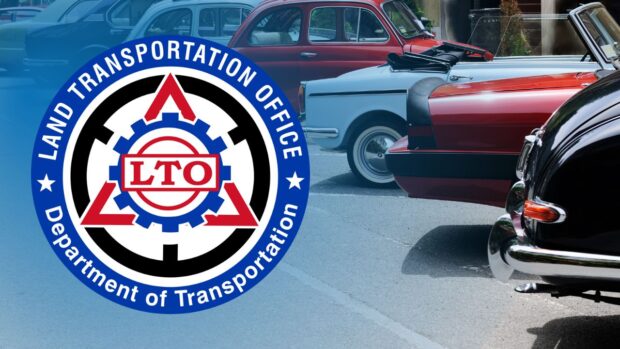
MANILA, Philippines – Land Transportation Office (LTO) on Friday reminded motorists that strict implementation of the ‘No Registration, No Travel’ policy will resume in 2024.
In a statement, LTO said that after the holiday festivities, it will continue the enforcement of the policy.
This rule imposes a P10,000 fine for motorists on the road with unregistered vehicles.
“Starting next week, we will be reviving our strict ‘No Registration, No Travel’ campaign across the country, so offenders would no longer be let off with a warning,” said LTO chief Vigor Mendoza II in Filipino and English.
Mendoza likewise warned LTO will be more aggressive in the campaign next year.
“As such, I would like to appeal to our delinquent motor vehicle owners to find time to renew the registration of their respective motor vehicles to avoid paying hefty fines,” he said.
READ: LTO-NCR revenue reaches P8.1 billion in 2023
Read: lto suspends license of overcharging taxi driver.
In early December, LTO relaxed the implementation of the ‘No Registration, No Travel’ policy in the “spirit of the Yuletide season.”
The announcement, however, was met with mixed reactions as many Filipinos argued that strict adherence to the guideline should be carried out year-round.
In November, LTO data revealed some 24.7 million or 65 percent of motor vehicles across the country are still unregistered.
Mendoza said LTO is taking steps to make the renewal of motor vehicle registration “fast and comfortable.”
“This is the reason why I ordered the creation of special or fast lanes for delinquent motor vehicle registration in all our offices nationwide,” he noted.
Subscribe to our daily newsletter
Disclaimer: Comments do not represent the views of INQUIRER.net. We reserve the right to exclude comments which are inconsistent with our editorial standards. FULL DISCLAIMER
© copyright 1997-2024 inquirer.net | all rights reserved.
We use cookies to ensure you get the best experience on our website. By continuing, you are agreeing to our use of cookies. To find out more, please click this link.
LTO revives ‘no registration, no travel’ policy as it cracks down on 24.7-M unregistered vehicles

A warning to those who have been driving unregistered vehicles: The Land Transportation Office (LTO) is bringing back the strict implementation of the ‘no registration, no travel policy’ after a review of data revealed that 24.7 million motor vehicles out of a total of 38.3 million on the road are classified as delinquent.
That’s a whopping 65% of vehicles that either have expired registration or were never registered to begin—and the total collectibles from registration payments and penalties amount to P37.10 billion . These figures could be higher still, because the review did not include data past April 2022, at which point the LTO adopted the use of the Land Transportation Management System (LTMS).
“ Yung included sa report na ito ng delinquent motor vehicles ay yung mga sasakyan na based sa aming record ay more than one year ng hindi nare -renew ang registration,” said LTO chief Atty Vigor Mendoza II . “ Hindi pa kasama dito yung mga less than a year na hindi naka -renew ng registration.”
OTHER STORIES YOU MIGHT HAVE MISSED: Congress: No ‘8’ plates released or currently authorized for use of House members What’s it like to renew your LTO driver’s license in 2023?
In the rankings of regions with the most number of delinquent motor vehicles, the National Capital Region came first with 4.1 million unregistered vehicles. Region III and Region IV-A followed with 3.3 million and 2.7 million, respectively.
Region VI and Region VII in the Visayas each have around 1.8 million, while Region VIII has roughly 758,000. Finally, in Mindanao, Region XI recorded 1.2 million unregistered vehicles, followed by Region XII with 1.1 million, then Region IX and Region X with almost one million each.
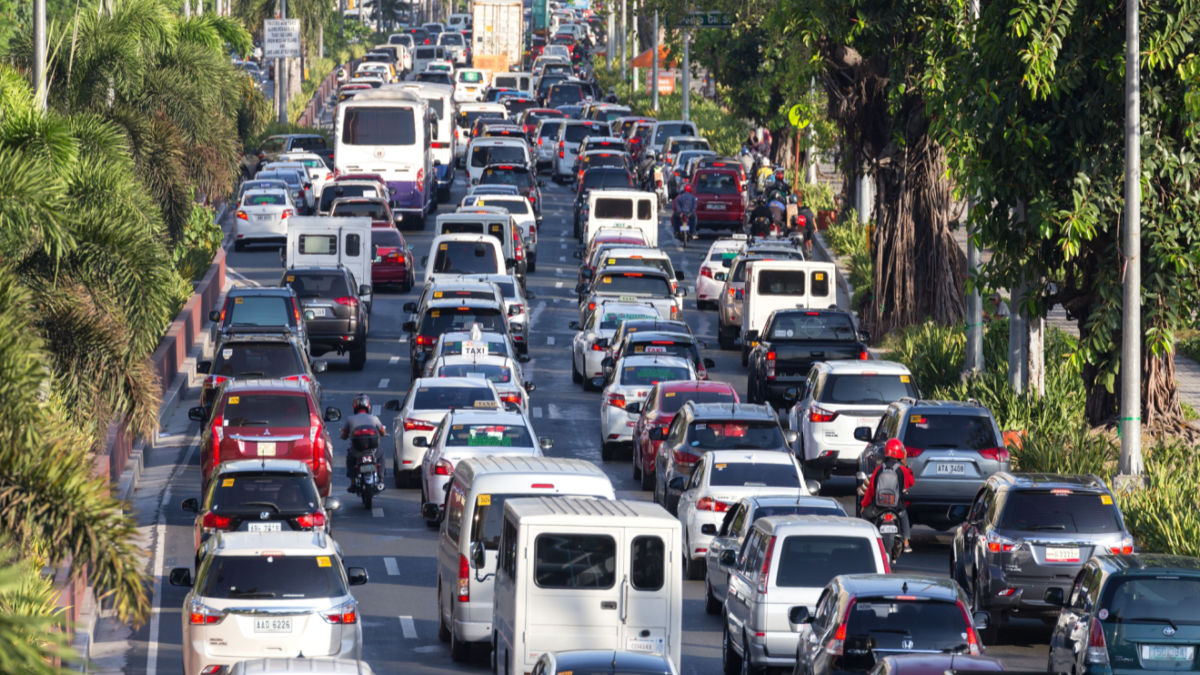
Categorizing the delinquent motor vehicles by type, unregistered motorcycles made up 20.15 million of the nationwide total, translating to a revenue loss of P18.4 billion . This is followed by four-wheeled vehicles, with P18.4 billion to be collected from 4.01 million delinquent registrations. Trucks and buses contribute around 490,000 to the tally of unregistered vehicles, amounting to P3.25 billion in pending collections.
Of the P37.10 billion collectible, P12.36 billion will go to national government.
Apart from tending to fail roadworthiness inspections , Mendoza said that delinquent motor vehicles do not have insurance coverage —not even compulsory third party liability . “In other words, these motor vehicles are threats to road safety,” the official stressed. “We have to be very strict in implementing the laws on land transportation not only to make it fair to the law-abiding motor vehicle owners but also for the welfare of the road users.
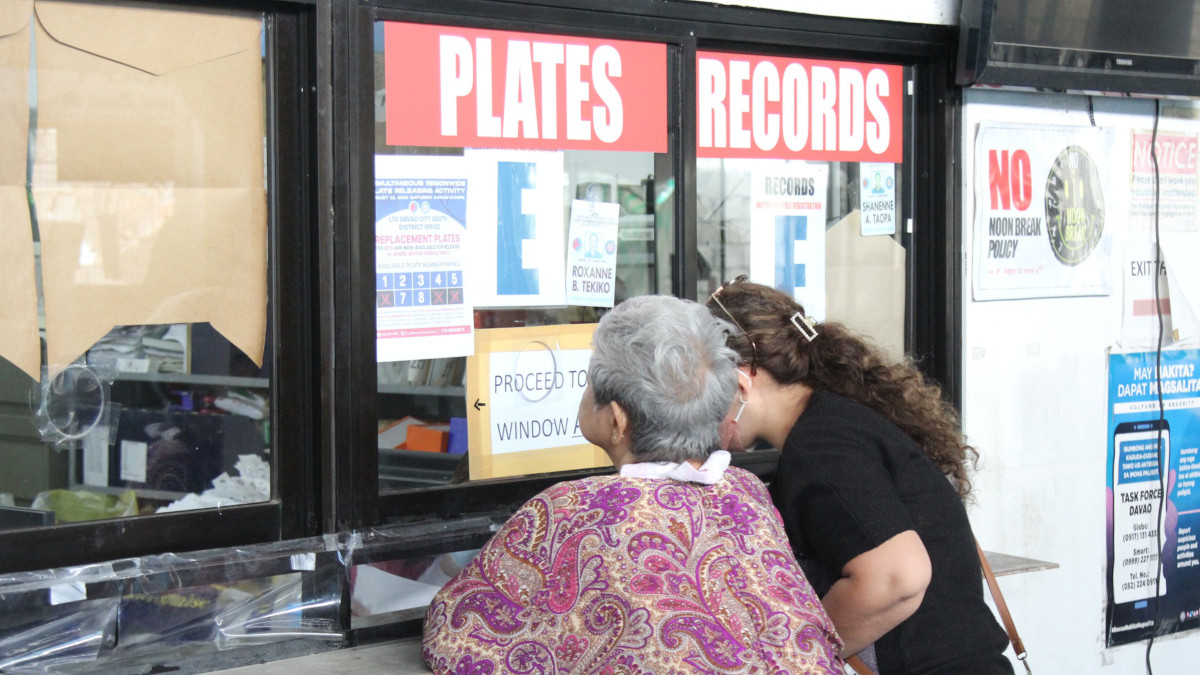
“ Kailangan nating maghigpit tungkol dito hindi lamang sa aspeto ng revenue losses sa gobyerno kung hindi dahil sa aspeto ng road safety, dahil malamang karamihan sa mga delinquent motor vehicles na ito ay may roadworthiness issues.
“ Hindi natin papayagan ito . May obligasyon ang bawat vehicle owner na irehistro ang kanilang mga sasakyan at ang tututukan natin ngayon ay ang strict compliance sa obligasyong ito .”
For its part, the LTO is still dealing with a backlog in its vehicle plate production , stating in its latest update that it may not finish printing some 13 million motorcycle plates until 2025. Owners of registered motor vehicles with pending plates are advised to use temporary plates that follow the LTO’s specifications .
LTO to resume strict implementation of ‘no registration, no travel’ policy:

- car registration
- LTO registration
- transportation
- motorcycle registration

- TRANS SPORT SHOW 2019
- Terms of Use
- Privacy Policy
- Brand / Model

- Below ₱ 500K
- ₱ 500K — ₱ 1M
- ₱ 1M — ₱ 1.5M
- ₱ 1.5M — ₱ 2M
- ₱ 2M — ₱ 3M
- ₱ 3M — ₱ 5M
Starts at ₱
We use cookies to ensure you get the best experience on Topgear.com.ph. By continued use, you agree to our privacy policy and accept our use of such cookies. Find out more here .
- Credit Cards and Loans
- Blog and Guides
- Check Credit Score
What You Need To Know About LTO’s ‘No OR/CR, No Travel’ Policy
Just as February gave us the Valentine’s blues, it seems like the Land Transportation Office (LTO) is here to make motorists go red hot—in rage.
A number of car owners raised their pitchforks after the government agency announced the format for the standardization of temporary license plates. The design, which went in effect last February 15, must be issued by all accredited car and motorcycle dealers and must strictly follow the template prescribed by the LTO.
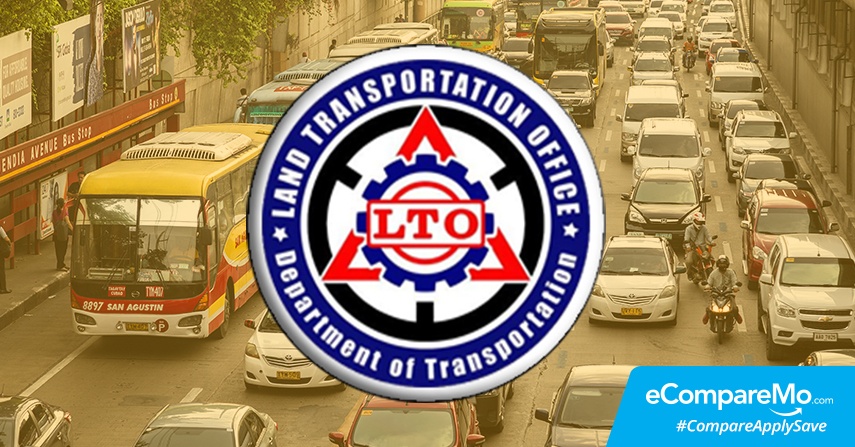
Upon its implementation, there has been a crackdown on drivers who are either not following the format for conduction-based license plates or new cars with no plates at all.
But one issue gave birth to another: The no OR/CR, no travel policy. Here’s what happened.
The ideal scenario
Despite the delay in the issuance of license plates, a person who buys a car should expect his vehicle to be fully available from the dealership in seven days. This means that the car has to be prepped and ready to go, with all the necessary documents are already secured.
Some of the documents needed to consider the vehicle fully registered are the following:
- Sales invoice, issued by the dealer
- Motor Vehicle Clearance Certificate, issued by the Philippine National Police and applied for by the dealer
- Certificate of Stock Reported, issued by the car manufacturer
- Certificate of Insurance Cover, applied for by the dealership especially for new cars
Since there have been long-standing delays with the issuance of license plates on vehicles, the LTO allowed motorists to use temporary license plates based on the Conduction Sticker of the vehicle.
However, this led to the confusion that the vehicle can freely use public roads with nothing but the Conduction Sticker. But the LTO clarified that the purpose of the Conduction Sticker is to allow the cars for road testing and delivery, not to act as a substitute for full registration.
To address this, the agency released a standardized format of temporary licenses, which should be used on all new vehicles starting February 15. The new layout also includes space for the Motor Vehicle (MV) File Number, which is only available once the car has been fully registered and encoded in LTO’s database.
The big crackdown
There has been a series of apprehensions on violators since the controversial LTO memorandum took effect. Top Gear Philippines says in a report that motorists without the new Conduction Sticker-based plates are pulled over to make sure that they are properly registered.
This is because of the fact that some dealerships have been releasing vehicles to buyers without securing all the documents mentioned.
“LTO Pasig Branch officer-in-charge Nida San Buenaventura says that dealers are slow to provide the necessary documentation needed for a car to be fully registered,†wrote Drei Laurel on Top Gear Philippines. “To complete the registration process, dealers must submit a sales invoice from the regional office, a stock report from the central office and PNP clearance.†This lays the blame on the inefficiency of dealers.
Meanwhile, CarGuide says that ideally, the official receipt should be available within seven days and that it is, in fact, possible to complete the processing in a day. However, the website reported that “there have been some reports of backlog at the LTO stretching up to 90 days.â€
Suspended, with a few buts and ifs
In a strange twist of events, CarGuide recently reported that the Land Transportation Office (LTO) has suspended the implementation of the policy for three months, or 90 days starting February 24, after a meeting with automotive dealers.
The yet-to-be formalized memorandum, the website said, allows dealers to deliver units to a buyer’s place of residence, but prohibits the owner from using the vehicle on public roads. Under the agreement, dealers may ask the buyer to sign an “oath of undertaking” that frees the dealer from any liability and penalties if the owner is apprehended for violating the said prohibition..
One thing’s for sure: It’s the car buyers who are in the losing end of the whole fiasco.
Since the LTO has started the strict implementation of the new license plates, here are the things you can do to stay out of this mess:
- If your vehicle was purchased before February 15 and you are apprehended, just present your OR/CR and you’ll be good to go. To avoid inconvenience, get a Conduction Sticker-based plate that follows the LTO standard. Samples below:
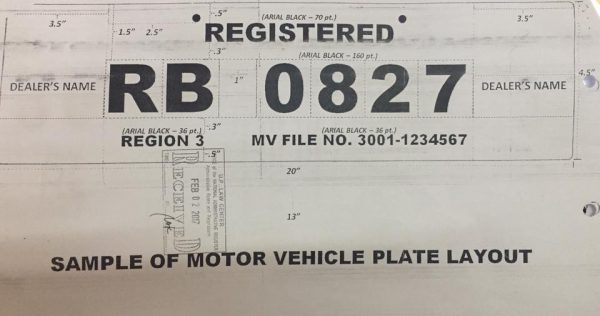
- If your vehicle was purchased after February 15, just keep your OR/CR and other documents with you at all times. Also, make sure your temporary license plate follows the prescribed format by the LTO.
- If your vehicle was purchased recently and you still don’t have the OR/CR, do not use your vehicle or you risk apprehension and fines. Since you don’t have the MV File Number—even if you use the standardized temp plate format—your car is still considered unregistered and can be pulled over. The fine for driving an unregistered motor vehicle is P10,000 for the owner and P1,000 for the driver.
At the end of the day, your Conduction Sticker doesn’t mean your car is already registered. If you have issues about your car’s OR/CR, talk to your dealer so they can sort things out. Also, make sure your car follows the LTO-mandated plate format to avoid hassles in the future.
About the author

eCompareMo eCompareMo is the No. 1 financial e-commerce site in the Philippines. Follow us on Twitter and Instagram: @ecomparemo.
Credit Cards
Our products, company updates.
- Career Opportunities
- Press Releases
- Our Insurance Services
- Car Insurance
- Prepaid Health Products
- CTPL Insurance
- Property Insurance
- Health Insurance
- Travel Insurance
- Personal Accident Insurance
To know about insurance
- Car insurance guide to CTPL
- What to do after a car accident
- Car insurance coverages and claims
- Understand CTPL coverage
- CTPL vs Comprehensive Car Insurance
- How to file a car insurance claim
- Grab and TNVS car insurance
- Processes in motor insurance claim
- Guide to buying secondhand cars
- Types of car insurance coverage
- What to do in case of a car accident
- To know about car insurance renewal
- Our Loan Services
- Personal Loan
- Housing Loan
- ORCR Sangla Personal Loan
- Business Loans
Calculators
- Personal Loan Calculator
- Housing Loan Calculator
Quick guides about loan
- What is an emergency loan
- What is no collateral loan
- Loan for Call Center Agents
- OWWA Loan Starter Guide

To know about loan
- How to get approved for personal loan
- How to apply for personal loan
- What to know about personal loan
- Key processes for personal loan
- Types of personal loan
- Loan secured by employer
- Loan secured by deposits
- Our Credit Card Services
- Best Credit Cards
- Airmiles Credit Cards
- Cashback Credit Cards
- Fuel Rebate Credit Cards
- No Annual Fee Credit Cards
- Promotions Credit Cards
- Rewards Credit Cards
- Shopping Credit Cards
- Travel Credit Cards
- Women’s Credit Cards
To know about credit cards
- How To Apply For a Credit Card
- Credit Card Types and Features
- What is Cashback and Rebates?
- What is Balance Transfer?
- All Banking Products
- All Insurance Products
Find and apply online
- Our Loans Services
- All Articles
- Credit Card
Cars in your comparison
Lto to implement stricter no plate no travel policy.
Those to be found without a license plate and/or conduction sticker will be flagged down.
The Land Transportation Office (LTO) is now implementing stricter adherence to its No Registration No Travel Policy. The government office has released a new memorandum with regards to the reiteration of the No Registration No Travel Policy which was dated November 10, 2020. This was done in light of a viral video between the Highway Patrol Group (HPG) and an SUV that was found to be traveling without a license plate and a conduction sticker. It is hoped that with stricter implementation and in conjunction with law enforcement this will further curb illegal activities of lawless elements who intentionally use motor vehicles with no license plates to commit crimes.

Cars found to be traveling without a license plate and without conduction sticker will be flagged down. Vehicles that have a license plate but do not have a conduction sticker will not be flagged down as the plate serves as a form of identification. Vehicles that only have a conduction sticker are also safe provided that the conduction sticker is also represented on the temporary plate. The driver may also provide a sales invoice for the vehicle as well. It is important to note, however, that the invoice is only valid for 7 days with limited travel.
If flagged down the driver of the vehicle will then have to produce the Certificate of Registration and Official Receipt for the vehicle. Fines and other penalties under Republic Act 4136 will be subjected to the driver of the vehicle if these documents cannot be produced. The LTO states that this will be done without prejudice to the liability of the concerned manufacturer, assembler, importer, and dealer.
The LTO has also notified car dealerships and reiterated the Administrative Order (AO) 83AO-DIR-001 as well with regards to the issuance and use of motor vehicle conduction stickers. The AO provides that conduction stickers attached to a motor vehicle shall be valid until the same is sold and delivered to the end-user. The end-user must then register the vehicle within 7-days from the date of delivery. The government body also suggests that prior to the release of a brand new vehicle, car owners must be briefed on these new policies and that they should be advised to coordinate with authorities when told to do so.
Car dealerships found violating the aforementioned guidelines will be subject to appropriate administrative action in accordance with the existing policies, rules, and regulations.
Related Articles
Latest news.

Here’s what you need to know about the new Hyundai Elantra N and IONIQ 5 N / News
Hyundai Motor Philippines unveiled the Elantra N and IONIQ 5 N, offering exciting options for Filipino car fans.

MG ZS EV volts into action at MIAS / News
MG ZS EV makes its debut at the 2024 Manila International Auto Show

Hyundai pulls the covers off the Elantra N and IONIQ 5 N at MIAS 2024 / News
HMPH has launched the Hyundai Elantra N and IONIQ 5 N at MIAS 2024, answering the prayers of Pinoy performance enthusiasts.
Popular Articles
- Cheapest cars under P700,000 in the Philippines Aug 25, 2023
- First car or next car, the Ford EcoSport is a tough package to beat Jun 18, 2021
- Car Maintenance checklist and guide – here’s everything you need to know Earl Lee · Jan 12, 2021
- Most fuel efficient family cars in the Philippines Bryan Aaron Rivera · Nov 27, 2020
- 2021 Geely Okavango — Everything you need to know Joey Deriquito · Nov 19, 2020
- Family cars in the Philippines with the biggest trunks Sep 20, 2023
- Head to head: Toyota Rush vs. Suzuki XL7 Joey Deriquito · Oct 28, 2020
- Why oil changes are important for your car Earl Lee · Nov 10, 2020
- 2021 Kia Stonic — What you need to know about it Joey Deriquito · Oct 16, 2020
- Top 7 tips for buying a used car in the Philippines Joey Deriquito · Nov 26, 2020

- Motorsports
- The Car Chart
- INQUIRER.net
LTO chief clarifies “no registration, no travel” policy

AN LTO ENFORCER flags down a pickup without a license plate on Edsa in Cubao, Quezon City, on the first day of the implementation of the agency’s “no plate, no travel” policy. Violators face up to P10,000 in fines on top of the impounding of their vehicles. LEO M. SABANGAN II
THE Land Transportation Office (LTO) has never issued a “no plate, no travel” policy,” its chief told a Senate hearing on Monday.
LTO chief Alfonso Tan Jr. made this clarification when he faced the joint hearing of the Senate blue ribbon committee and the public services committee inquiring on the alleged “inefficient regulations, undue burden inconveniences and harassment” that the LTO has imposed on the Filipino people as well as the alleged irregularities it conducted concerning the procurement of motor vehicles plate.
Ejercito said he was making the clarification because the reported “no plate, no travel” policy has created confusion among motorists. He said there were also some individuals taking advantage of the P5,000 fine that would be imposed on those who would travel without license plates.
“Like I said, your honor, it has always been no registration, no travel and we discussed that also intensively last Friday, yung tungkol sa enforcement,” the LTO chief said.
“Sa parte naman ng LTO, kung may OR-CR hindi namin kayo titiketan kaya ang tanong ko nga kung sino yung nanghuhuli kasi kung LTO ticket ang ginamit, meron ho silang five days to contest at kung nakita ho namin sa contest na may OR-CR, idi-dimiss ho namin yung apprehension,” he said.
Tan though said he was informed that some municipalities are considering issuing an ordinance that would impose a “no plate, no travel.”
“We’ll try to coordinate with them and convince them but that’s beyond us,” the LTO chief added.
Disclaimer: The comments uploaded on this site do not necessarily represent or reflect the views of management and owner of Cebudailynews. We reserve the right to exclude comments that we deem to be inconsistent with our editorial standards.

LTO eases ‘no registration, no travel’ policy over the holidays
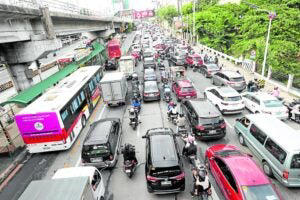
- born again christian dating sites uk
- ways to meet guys
- https://www.motoph.com/date-of-last-menstrual-period/
- birmingham dating site
Mandatory Implementation of LTO’s ‘No Registration, No Travel’ Policy
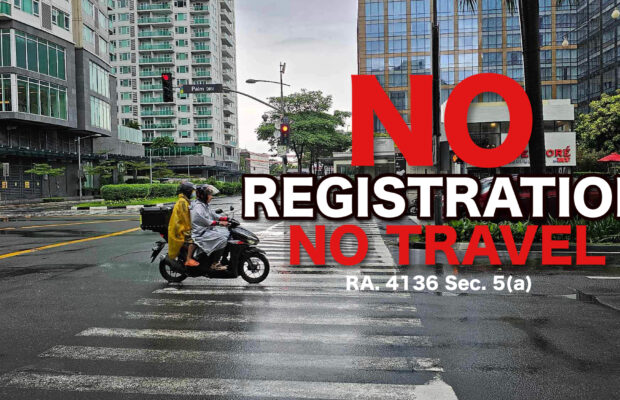
At least 41 motorcycle riders were apprehended as the Land Transportation Office (LTO) commenced the rigorous enforcement of the “No Registration, No Travel” policy on Monday, November 20.
All individuals apprehended hailed from Metro Manila, which records the highest number of delinquent motor vehicles. However, LTO Chief Assistant Secretary Atty. Vigor D. Mendoza II asserted that these proactive measures would extend nationwide.
Mendoza highlighted the prevalence of unregistered motorcycles, noting that many have been off the registry for up to five years. He emphasized the commitment to taking action and compelling owners to register their vehicles, affirming, “We will not tolerate this, and our fellow citizens can expect us to take actions to force the owners to register.”
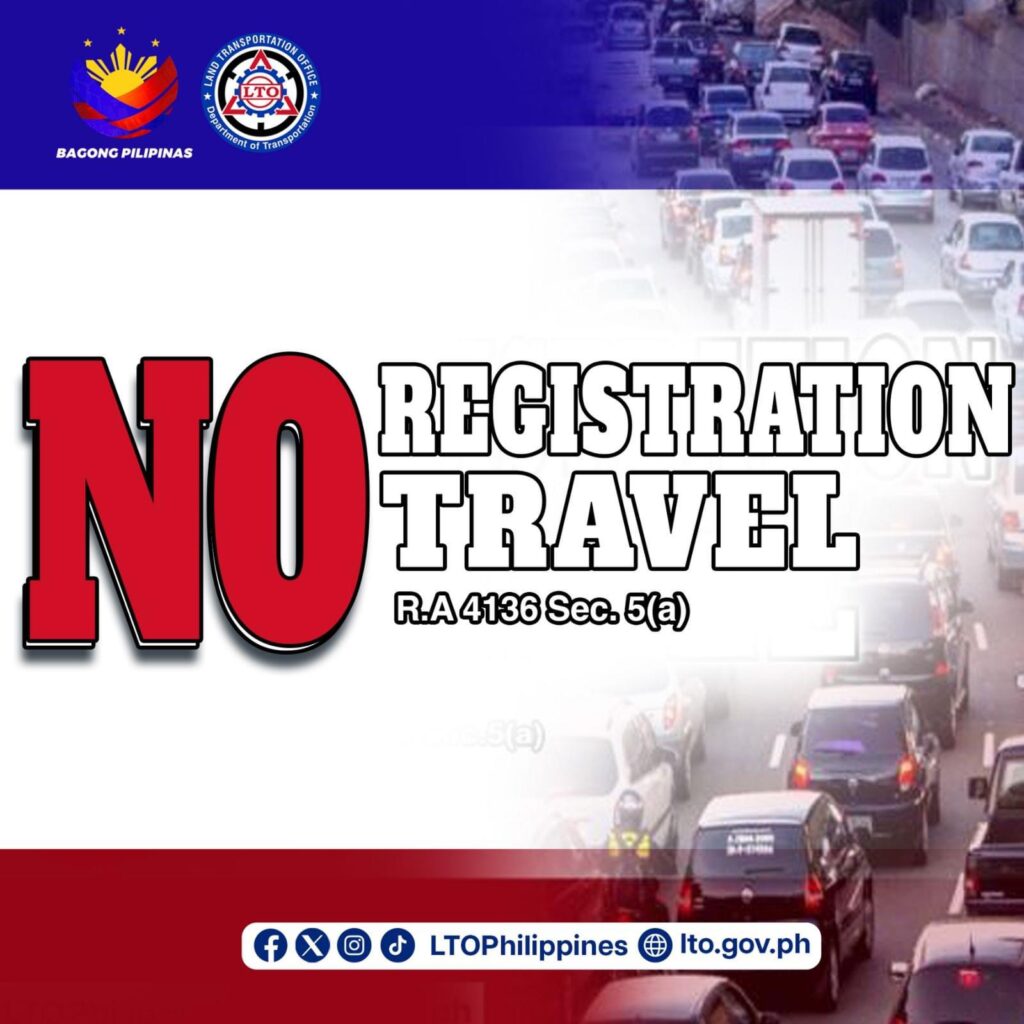
As part of the intensified operations, Mendoza directed LTO Regional Directors to collaborate with the Police Regional Offices of the Philippine National Police and traffic enforcement units of local government units (LGUs) to address the issue of unregistered motorcycles.
The records indicate approximately 24.7 million delinquent vehicles, primarily motorcycles, whose owners have either failed or deliberately refused to register their motor vehicles.
The LTO-Law Enforcement Section (LES) initiated the deployment of enforcers in areas commonly frequented by motorcycles, such as Katipunan Avenue and Aurora Boulevard. Enforcers issued citation tickets to all apprehended drivers, and motorcycles without registration were impounded, in accordance with Chief Mendoza’s directive.
Mendoza emphasized that the campaign to register all delinquent motor vehicles aligns with the directive of Department of Transportation Secretary Jaime Bautista. The goal is to ensure that all motor vehicles traveling on the roads undergo road-worthiness inspections, a prerequisite for registration.
“The operation we conducted in Metro Manila should serve as a warning to all delinquent motor vehicle owners to register them at the soonest possible time. Do not wait until you get caught because more serious problems will confront you,” warned Mendoza.
#LTOPH #LTOPhilippines #DOTrLTO
Featured Video: Yamaha Nmax
Featured video: suzuki smash, latest news.
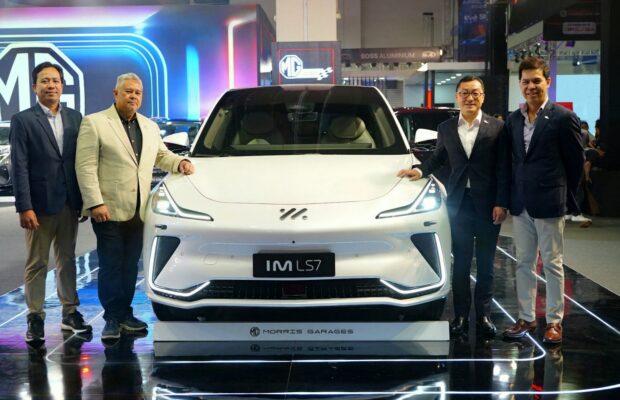
MG Philippines Unveils IM LS7 Electric Crossover SUV at MIAS 2024
MG Philippines has once again captivated auto enthusiasts at this year’s Manila International Auto Show (MIAS) by introducing the IM LS7 to the Philippine market. The LS7 represents MG’s...

Geely Auto 2023 Financial Results Unveiled

MG Stuns Filipino Motorists and Enthusiasts with Spectacular Lineup at MIAS 2024

Nissan Offers a Glimpse into the Future of Electrified Mobility with the Debut of ARIYA e-4ORCE at the 19th Manila International Auto Show

Connecting the Road Ahead at MIAS 2024: NOW OPEN!

Motorcycle News

Corsa Motorcycle Tires and Suzuki Motoquest Forge Unprecedented Partnership, Transforming Streets Nationwide with Epic Collaboration

Suzuki Raider R150 Big Ride: Honoring Dominance and Advocating Road Safety

New Moto Marketing Corp. Unveils Exciting Skygo and Monarch Motorcycle Models at the 16th IR Bikefest

Aprilia SR GT Replica

Unleash Your Resilience: G-SHOCK and Team Land Cruiser Unveil New Mudmaster Collaboration Model

ENHANCING THE RIDING SKILLS OF RIDERS THROUGH TRACTION RIDE COMPETITION: CORSA MOTORCYCLE TIRES SUPPORTS FEBPUBLIKA 2024

Introducing PRZM: Elevate Your Adventures with Cutting-Edge Auxiliary Lights
Copyright © 2014 MOTOPH.COM
- MotoPh Team
Privacy Overview
- Subscribe Now
Does LTO’s ‘no registration, no travel’ policy make sense?
Already have Rappler+? Sign in to listen to groundbreaking journalism.
This is AI generated summarization, which may have errors. For context, always refer to the full article.

Last 30 March 2015, the Land Transportation Office (LTO) issued Memorandum Circular No. AVT-2015-1930 enforcing a policy on “ no registration, no travel ” of four-wheeled motor vehicles pursuant to Joint Administrative Order No. 2014-01, which stipulates the revised schedule of fines and penalties for violations of laws, rules and regulations governing land transportation.
Under the memorandum circular, the owner of the unregistered vehicle will be fined P10,000.00. The driver of the same vehicle will be charged a separate P1,000.00.
If the car owner or driver will be able to present proof that the vehicle is duly registered, i.e., Current Official Receipt (OR), and Certificate of Registration (CR), or its photocopy, a P5,000-fine will be charged for failure to attach the authorized motor vehicle license plates (see Section II of the Joint Administrative Order No. 2014-01).
However, fines and penalties are not applicable for motor vehicles purchased in the past seven days. The timeframe supposedly reflects the improved processing time upon implementation of the Administrative Order No. AVT-2014-24.
Owners of such vehicles, upon being flagged down, shall present the following:
- Sales Invoice of the Motor Vehicle, the same being dated within seven (7) days prior to the date of apprehension;
- Certificate of Cover (COC) of Third Party Liability (TPL) Insurance, the same being dated on or after the issuance of the above Sales Invoice; and
- Certificate of Stock Reported (CSR) as issued by this Office, the same dated on or prior to the issuance of the above Sales Invoice.
If a motor vehicle has been unregistered for more than 37 days, it will be impounded and released only upon registration and payment of appropriate fines and penalties.
LTO’s arguments
The LTO points out that the implementation of the rule is consistent with Section 5 of Republic Act of 4136 or the “Land Transportation and Traffic Code,” which stipulates that all motor vehicles and other vehicles must be registered before use on or upon any public highway of the Philippines. Section 18 of the five decade-old law, likewise, provides for the display of number plates.
The same rule is supposed to be implemented even as far back as the last months of 2013 upon enacting the “Motor Vehicle License Plates Standardization Program” through Memorandum Circular No. VPT-2013-1772. This was suspended, however, due to the inability of the LTO to issue license plates.
According to the LTO, processing time has reportedly been now reduced to seven days from the previous three to four weeks. Said to have solved previous problems in plate production and the registration process, the rule was re-implemented by LTO. They stressed that they have already addressed the backlog of license plates, particularly with previously issued ORs/CRs.
What critics are saying
After being held up for several times, the LTO policy finally took effect on the first day of April. However, it received protests from new motor vehicle owners, dealers as well as from the MMDA chair himself who even called the policy “unconstitutional and un-Christian.”
What critics of the new LTO policy point out is that the LTO processing time actually takes much more than 7 days to get a new plate. LTO claims that processing has been “typically” reduced to seven days, but this summary measure is a mere average, i.e., it does not account for the variation in processing times that new car owners face if they decide to register the vehicles on their own.
In many discussion groups in social media, we noticed that hardly anyone has gotten their plates in seven days as claimed by LTO. New cars, when released to the buyer, are typically registered a few days after they are released, since dealers have been registering vehicles in bulk, and also have their own “internal” processing of papers (i.e. preparation of manager’s checks to LTO) before documents are submitted to the LTO.
Delays in the issuance of license plates by the LTO have always been cited for non-compliance with the rule. Car dealers have suggested that insufficient manpower in the LTO unnecessarily slows down the process of issuing available plates. Various groups have called for a moratorium of the LTO policy considering the above glitches in the existing system.
Senator Alan Peter Cayetano, in a press release , said that a 30-day moratorium is needed to give ample time for “the private contractor to produce new plates, the LTO to address the backlog and car dealers to immediately claim the car plates of the buyers.” The Senate Majority Leader has even threatened to block the budget of the LTO if it does not declare a moratorium on the policy.
Questions for dealers, LTO
While the policy is binding by law, compliance is clearly constrained by the existing system.
The LTO policy fines or charges the driver/owner of the unregistered motor vehicle, particularly the newly purchased, even if the fault is actually beyond his/her control. New car owners wonder why they have to pay for these fines if the accountability for delays are on the part of dealers, and/or the LTO.
Car owners put the responsibility solely on the LTO and the dealers. After all, wouldn’t car owners want to have their plates available since they have already paid for the service? An accountability framework should reward good practices, and punish not so good ones. But here, owners, who paid for the car and the processing of the car, including the consumption taxes, are being asked to pay a fine when a delay in the plates are not their responsibility.
Shouldn’t the dealers instead pay the fine if it can be shown that they are the main bottleneck, or someone at LTO or the Department of Transportation and Communications be held to resign if plates are not released as per the claimed “typical” processing time?
One also wonders why car owners have to pay a Third Party Liability (TPL) insurance fee at LTO to “speed up” processing at LTO, if owners already pay for full insurance coverage (typically bundled with car purchase costs)? Isn’t TPL part of full coverage?
Why does LTO staff prefer to have TPL paid? And if car owners pay for TPL at LTO, this is normally much cheaper than if they pay for TPL at the dealers.
So dealers and the LTO do have a lot to answer for. Alas, there is very little that car owners can do other than to complain in social media, with leaders in the executive having deaf ears to the issue.
Motor vehicle sales on the rise
An examination of the demand for motor vehicles suggests an increasing trend in car sales (Table 1).
This increase is riding on increasing per capita GDP, a rising middle class, continuous remittance flows from overseas Filipinos, as well as competitive financing schemes available for the purchase of new vehicles.
Table 1. Sales of Motor Vehicles among selected ASEAN countries, 2011-2014, Jan-Feb 2015
Source: ASEAN Automotive Federation
Based on the industry report , the Philippine automotive industry recorded sales of 62,882 units in the first quarter of 2015, up by 22 percent from almost 52,000 units during the same period last year.
Considering that government is pushing an industrial plan based on automotive manufacturing, the LTO and the DOTC will need to ask what exactly it is doing regarding the growth in car sales.
I will not be surprised, if car sales start slowing this second quarter given the disincentive for purchasing new vehicles.
With the expectation that more and more Filipinos will be buying vehicles in the country, the LTO should be improving its distribution system.
However, consider some LTO-related statistics we gathered from 2011 to 2013.
Table 2. LTO-related Statistics, 2011-2013
Source: Land Transportation Office Annual Report
Constraints and bottlenecks are said to have been already identified and addressed, whether in the number of human resources at LTO or in the whole registration process.
There are, however, clearly other actors in the car registration process beyond the LTO that play crucial roles in being able to release the car plates. These include the contractor that manufactures the license plates, as well as the dealers who are expected by the buyers to handle everything from registration to the delivery of license plates.
One of the authors of this article also has his own story to tell about this entire process.
He purchased a new vehicle at Mitsubishi Alabang last 10 April (after the LTO policy pushed through). Getting the vehicle released was already an ordeal with the Mitsubishi Alabang sales agent asking him to come at 11 am , and making him wait up to 5 pm just to get the COC for the TPL.
The sales agent, Ms. Sheryl Dalusong said that they would be taking a day or two to register at LTO, but Mitsubishi Alabang only registered the vehicle at LTO NCR office on April 22, more than 7 days after he had paid for everything!
The plates were released by Mitsubish Makati from LTO another two weeks later, after constant follow up communication with Mitsubishi Alabang. The OR/CR though is dated April 30.
The LTO as well as Transportation Secretary Abaya claim that the problem is with the dealers who don’t register promptly. There may be more to it than the dealers though.
We certainly would not recommend purchasing a vehicle from Mitsubishi Alabang, especially from Ms. Dalusong, given the kind of treatment of clients by this dealer, and by the sales agent, in particular. If one looks at the ORCR, it may seem as though LTO can indeed release plates within 7 days, but one wonders if the ORCR is released together with the plates. One has to study the whole process of car registration, and exact timelines.
The LTO however should not penalize car owners, but rather car dealers based on documents that show the date of purchase of car owners and the actual date of registration at LTO. If dealers registered at LTO on a certain date, the LTO could develop a system on its website posting information if car plates are ready for pick-up at LTO by merely entering the conduction sticker, make of the car, among other information.
But such systems are not in place at the LTO. One wonders whether you get what you pay for whether at Mitsubishi or at LTO.
There are clearly kinks and quirks in the LTO registration system (both on the dealer side and at the LTO). Thus this LTO policy deserves re-inspection – by the executive and by the legislature. Let whoever is accountable be made accountable.
Spare the car owners, though, who have already paid their fair share of taxes, and whose only fault is adding to the traffic in the country. But isn’t traffic also more of a management issue? Do the DOTC and its bureaus recognize that they may be contributing to the growing public disenchantment over the executive? – Rappler.com
Add a comment
Please abide by Rappler's commenting guidelines .
There are no comments yet. Add your comment to start the conversation.
How does this make you feel?
Related Topics
Recommended stories, {{ item.sitename }}, {{ item.title }}.
Checking your Rappler+ subscription...
Upgrade to Rappler+ for exclusive content and unlimited access.
Why is it important to subscribe? Learn more
You are subscribed to Rappler+

- Bike Reviews

LTO: No registration, No travel policy to resume next year

Because of the holidays, LTO to ease up on campaign vs expired registrations
As of December 6, 2023, the Land Transportation Office (LTO) has reported that they have apprehended and impounded a total of 4,864 vehicles, mostly motorcycles, as a result of the agency’s intensified campaign against vehicles with expired or delinquent registrations.
Earlier, the LTO reported that the agency has close to PHP 37 billion in income loss , which its officials blame on motorists who did not renew their vehicle’s registration. The LTO added that this is equivalent to 65% of all vehicles on the road have an expired or delinquent registration.
But, in the spirit of the holidays, LTO chief, Assistant Secretary Vigor Mendoza II, has ordered the easing of the agency’s "No Registration, No Travel" policy and has instructed its units to just issue a warning to erring motorists.
“Our DOTr Secretary Jaime Bautista immediately approved this when we consulted this matter. It’s the season for celebrations and we don’t want your LTO to be the cause of stress,” said Mendoza.
Mendoza said he already relayed his order to ease the strict implementation of the policy to all LTO Regional Directors and other heads of units including the Law Enforcement Service which is mainly in charge of the operation against delinquent motor vehicles.
Based on the instruction of Mendoza, the strict implementation of the No Registration, No Travel policy will resume in January next year. The LTO Chief said all enforcers of the agency were instructed to just warn the drivers of the delinquent motor vehicles.
“But let me make this clear: there is no ‘forever’ in our leniency towards delinquent vehicles. After the new year’s celebrations, the LTO will be back in strict enforcement,” added Mendoza.
He then advised delinquent motor vehicles to set aside a portion of their 13th-month pay and bonus for the renewal of the registration of their delinquent motor vehicles.
Over PHP 5 million worth of prizes await lucky motorists

New KOVE 800X RALLY in 2024

Suzuki introduces the V-Strom 800RE
The V-Strom 800RE is ready for the long haul

Shell Advance will continue to be Ducati’s official motor oil
High-performance Ducati engines lubricated by Shell Advance motor oils

MMDA allows 24-hour roadworks by DPWH until April 11
Unfinished roadworks to be completed by DPWH by next week

Corsa and Suzuki redefine streets with epic tandem success
A successful collaboration between Corsa Tires and Suzuki on a nationwide road safety campaign

Watch: Indian Motorcycle unveils the 2025 Indian Scout lineup
5 new models, 3 trim levels each

CA lifts injunction, LTO sets renewal sched for plastic card DLs
Motorists can now have their printed plastic card driver's licenses

Suzuki celebrates 20 years of the Underbone King with a big ride
Celebrating the Raider R150's Supremacy and Promoting Road Safety

NLEX launches ‘Ang Bida ng Kalsada’ child road safety picture book
Promoting road safety through children's book
- LTO eases ‘no registration, no travel’ policy
In time for X-mas season

MANILA: In the spirit of the Christmas season, the Land Transportation Office (LTO) has eased the implementation of the "no registration, no travel" policy.
KEY TAKEAWAYS
For how long will the land transportation ease the implementation of the, how many motor vehicles in the philippines have yet to renew their registration.
In a statement, LTO Chief Assistant Secretary Atty. Vigor Mendoza II said that Department of Transportation Secretary Jaime Bautista immediately gave a go signal for the implementation to be softened up to December 31, 2023.
“ Panahon ngayon ng pagdiriwang at ayaw naman natin na ang inyong LTO ay magdudulot pa ng stress sa ating mga kababayan (This is the time for celebrations, and we do not want the LTO to cause more stress to our compatriots),” Mendoza was quoted as saying.
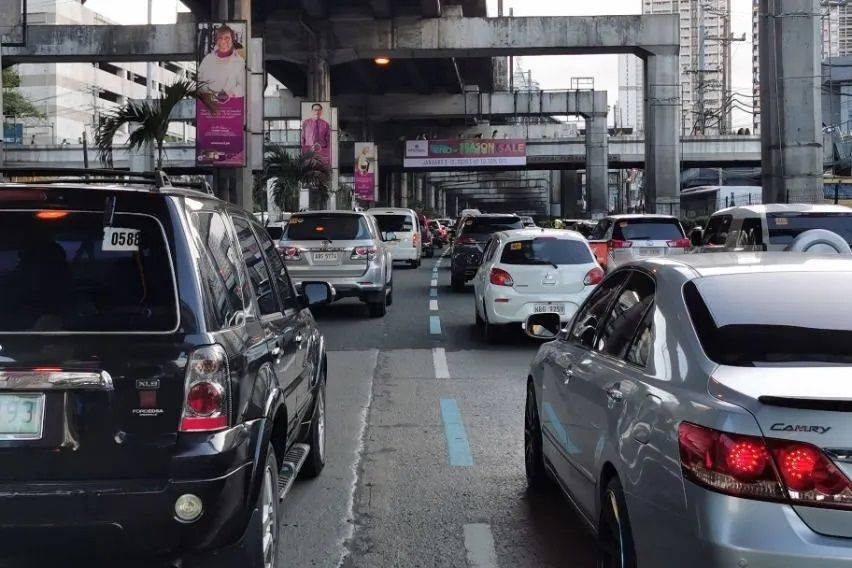
The order has already been relayed to all regional directors and other unit heads that include the Law Enforcement Service, which is mainly in charge of the operation against delinquent motor vehicles.
According to him, the resumption of the policy’s implementation shall resume by January 2024. Enforcers, Mendoza added, were instructed to only warn drivers of delinquent motor vehicles.
He then said delinquent motor vehicle owners should set aside a part of their 13th-month pay and bonus to renew their registration.
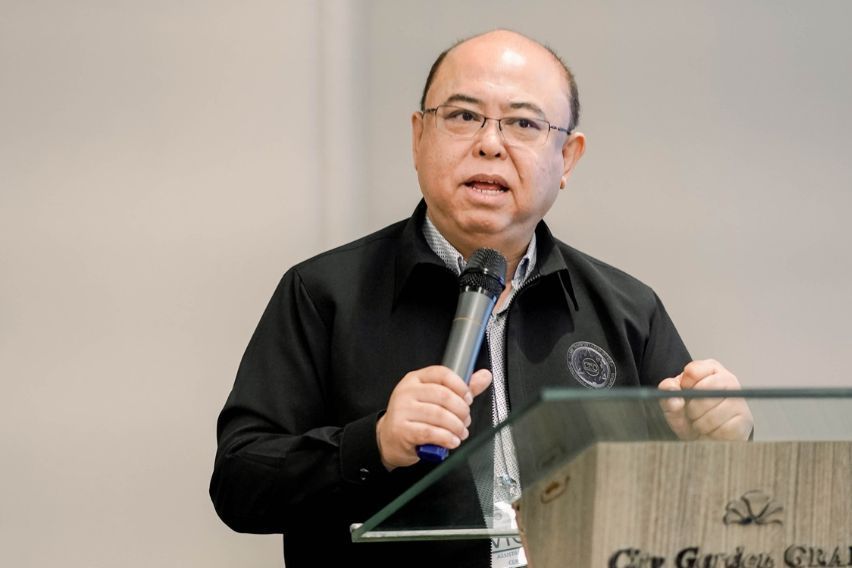
Earlier, Mendoza ordered the LTO Regional Directors and District Office heads to put up priority lanes for the registration of delinquent motor vehicles. The aforementioned lanes will continue to be open for this month for those who already decided to renew the registration of delinquent motor vehicles.
The “no registration, no travel” initiative was made after the LTO claimed that around 24.7 million vehicles are classified as delinquent — which is 65 percent of the total number of vehicles in the country.
Photos from Ruben Manahan IV, Land Transportation Office
LTO ramps up anti-colorum campaign
LTO seeks to extend online registration renewal for PUVs
LTO to review enforcement of temporary operator’s permit for traffic violators
Share this article
Sell your car at the best price.

You might also be interested in
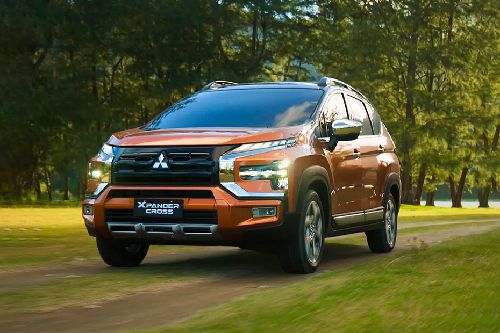
Latest Car Videos on Zigwheels

Car Articles From Carmudi

Search Other Cars
- Popular Car Brands
- Trending Now
- Cars by BodyType
- Search by Interest
- Jetour Philippines
- Mitsubishi Triton 2024
- Toyota Wigo 2024
- Suzuki Jimny 5-Door
- Toyota Raize
- Toyota Avanza
- Mitsubishi Xpander
- Ford Ranger Raptor
- Jetour Ice Cream EV
- Honda Civic
- Ford Territory 2024
- Suzuki Jimny
- Toyota Vios 2024
- Toyota Hilux
- Crossover Cars
- Hatchback Cars
- Pickup Trucks
- Upcoming Cars
- Compare Cars
- Electric Cars
- Hybrid Cars
- Number Coding
- Car Insurance
Cookies on Zigwheels
We use cookies to improve your experience on our website. By continuing to browse this site, you agree to our Privacy Policy
Choose a city to get promos and prices in your area
- Election 2024
- Entertainment
- Newsletters
- Photography
- Personal Finance
- AP Investigations
- AP Buyline Personal Finance
- Press Releases
- Israel-Hamas War
- Russia-Ukraine War
- Global elections
- Asia Pacific
- Latin America
- Middle East
- Election Results
- Delegate Tracker
- AP & Elections
- March Madness
- AP Top 25 Poll
- Movie reviews
- Book reviews
- Personal finance
- Financial Markets
- Business Highlights
- Financial wellness
- Artificial Intelligence
- Social Media
US-funded Radio Free Asia closes its Hong Kong bureau over safety concerns under new security law
FILE - Surveillance cameras are seen as a visitor looks at Victoria Harbour in Hong Kong, Monday, March 11, 2024. The president of U.S.-funded Radio Free Asia said its Hong Kong bureau has been closed because of safety concerns under a new national security law, deepening concerns about the city’s media freedoms. Bay Fang, the president of RFA, said in a statement Friday March 29, 2024 that it will no longer have full-time staff in Hong Kong, although it would retain its official media registration. (AP Photo/Louise Delmotte, File)
- Copy Link copied
HONG KONG (AP) — The president of U.S.-funded Radio Free Asia said Friday that its Hong Kong bureau has been closed because of safety concerns under a new national security law, deepening concerns about the city’s media freedoms.
Bay Fang, the president of RFA, said in a statement that it will no longer have full-time staff in Hong Kong, although it would retain its official media registration.
“Actions by Hong Kong authorities, including referring to RFA as a ‘foreign force,’ raise serious questions about our ability to operate in safety with the enactment of Article 23,” Fang said.
RFA’s move is widely seen as a reflection of the city’s narrowing space for a free press following the enactment of the Safeguarding National Security Ordinance , locally also known as Article 23 legislation.
Rep. Gregory Meeks, the ranking member of the House Foreign Affairs Committee, expressed concern over RFA’s shutdown and said the new law “not only represents a significant escalation in efforts by Hong Kong and Beijing authorities to suppress free speech and expression,” but “also undermines media freedom and the public’s ability to obtain fact-based information.”
Cédric Alviani, the Asia-Pacific bureau director for Reporters Without Borders, called the broadcaster’s withdrawal “a consequence of the chilling effect applied on media outlets” by the new security law.
“We urge democracies to build up pressure on Chinese authorities so that press freedom is fully restored in the territory,” Alviani said.
The U.S. State Department on Friday announced it was taking steps to impose new visa restrictions on a number of unspecified Hong Kong officials “responsible for the intensifying crackdowns on rights and freedoms” in the territory, following its annual assessment under the Hong Kong Policy Act.
The State Department said the new security law could be used to suppress dissent inside Hong Kong and further Beijing’s campaign to intimidate activists abroad.
Hong Kong, once seen as a bastion of media freedom in Asia, has already changed drastically since Beijing imposed a similar security law in 2020, following anti-government protests in 2019.
Since the introduction of the 2020 law, two local news outlets known for critical coverage of the government, Apple Daily and Stand News, were forced to shut down after the arrest of their senior management , including Apple Daily publisher Jimmy Lai.
Hong Kong ranked 140th out of 180 countries and territories in Reporters Without Borders’ latest World Press Freedom Index.
The new home-grown security law, which was enacted through an expedited legislative process last week, has expanded the government’s power to stamp out challenges to its rule.
It targets engaging in espionage, disclosing state secrets and “colluding with external forces” to commit illegal acts, among others. Some offenses, such as treason and insurrection, carry a maximum penalty of life imprisonment.
The legislation has sparked worries among many journalists over a further decline in media freedom. They fear the broadly framed law could criminalize their day-to-day work.
RFA, funded by the U.S. Congress through the U.S. Agency for Global Media, has recently been under the Hong Kong government’s attack. In January, police issued a letter to RFA and condemned it for quoting “false statements” by wanted activist Ted Hui that they said smeared the police force.
Hui, a former pro-democracy lawmaker, is one of the overseas-based activists for whom police have offered awards of 1 million Hong Kong dollars ($128,000) for information leading to their arrest. He is accused of requesting foreign countries to impose sanctions on Hong Kong and China.
In February, Hong Kong’s security minister, Chris Tang, said some comments quoted in reports by RFA about the new legislation were “fake” and “false.”
He did not specify the comments or reports, but said they suggested that some provisions of the law were targeting the media. He insisted there were protections for the media in the legislation.
When asked whether the work of RFA is considered “external interference” or “espionage,” Tang said any violation of the law should be judged on a case-by-case basis. If someone deliberately used false information to defame the government’s legislative work, he said he had to let Hong Kongers see clearly the intention of these “external forces” and those who have fled and want to endanger Hong Kong’s security.
The Hong Kong government on Friday refused to comment on operational decisions of individual organizations. But it condemned “all scaremongering and smearing remarks” against the new law in an email response.
It said many other countries also have security laws. “To single out Hong Kong and suggest that journalists would only experience concerns when operating here but not in other countries would be grossly biased, if not outrageous,” it said.
The government insisted the new law only targets an extremely small minority of people who endanger national security and that most journalists will not unwittingly violate it.
Fang said RFA’s Hong Kong bureau has operated as a private news organization since its launch in 1996 and that its editorial independence was safeguarded by a firewall endorsed by the U.S. Congress.
“This restructuring means that RFA will shift to using a different journalistic model reserved for closed media environments,” she said.
But she assured RFA’s audience in Hong Kong and mainland China that its content would “continue without disruption.”
Hong Kong authorities have not announced any arrests under the new law. But the government on Wednesday condemned the BBC for what it called an “extremely misleading report” about an activist who was blocked from a remission of sentence, or early release , under the law. Tang also wrote a letter to condemn an opinion piece by The New York Times.
Over the past months, articles by other international media outlets, including the Washington Post and The Times, also have been criticized by officials.
Associated Press writer Didi Tang in Washington contributed to this report.
Official websites use .gov A .gov website belongs to an official government organization in the United States.
Secure .gov websites use HTTPS A lock ( A locked padlock ) or https:// means you've safely connected to the .gov website. Share sensitive information only on official, secure websites.
- Create Account
Notice of FY 2025 H-1B Cap Initial Registration Selection Process Completion and Cap Season Reminders
H-1B Initial Electronic Registration Selection Process Completed
U.S. Citizenship and Immigration Services has received enough electronic registrations for unique beneficiaries during the initial registration period to reach the fiscal year (FY) 2025 H-1B numerical allocations (H-1B cap), including the advanced degree exemption (master’s cap). We have randomly selected enough properly submitted registrations for unique beneficiaries projected as needed to reach the H-1B cap and have notified all prospective petitioners with selected beneficiaries that they are eligible to file an H-1B cap-subject petition for such beneficiaries.
Registrants’ online accounts will now show one of the following statuses for each registration (that is, for each beneficiary registered):
- Submitted: The registration has been submitted and is eligible for selection. If the initial selection process has been completed, this registration remains eligible, unless subsequently invalidated, for selection in any subsequent selections for the fiscal year for which it was submitted.
- Selected: Selected to file an H-1B cap petition.
- Not Selected: Not eligible to file an H-1B cap petition based on this registration.
- Denied – duplicate registration: Multiple registrations were submitted by or on behalf of the same registrant for the same beneficiary. If denied as a duplicate registration, all registrations submitted by or on behalf of the same registrant for this beneficiary for the fiscal year are invalid.
- Invalidated – failed payment: A registration was submitted but the payment method was declined, not reconciled, or otherwise invalid.
- Deleted: The submitted registration has been deleted and is no longer eligible for selection.
- Processing submission: USCIS is processing your submission. It may take up to 72 hours for all of your case information to show on the case details page. While it is processing, you will be unable to access your draft.
For more information, visit the H-1B Electronic Registration Process page.
FY 2025 H-1B Cap Petitions May Be Filed Starting April 1
H-1B cap-subject petitions for FY 2025, including those petitions eligible for the advanced degree exemption, may be filed with USCIS beginning April 1, 2024, if filed for a selected beneficiary and based on a valid registration.
Only petitioners with registrations for selected beneficiaries may file H-1B cap-subject petitions for FY 2025.
An H-1B cap-subject petition must be properly filed at the correct filing location (see H-1B Form I-129 Filing Location Change to Lockbox section below) or online at my.uscis.gov and within the filing period indicated on the relevant selection notice. The period for filing the H-1B cap-subject petition will be at least 90 days. Petitioners must include a copy of the applicable selection notice with the FY 2025 H-1B cap-subject petition.
Petitioners must also submit evidence of the beneficiary’s valid passport or travel document used at the time of registration to identify the beneficiary.
Petitioners filing for selected beneficiaries based on their valid registration must still submit evidence or otherwise establish eligibility for petition approval, as registration and selection only pertains to eligibility to file the H-1B cap-subject petition.
For more information, visit the H-1B Cap Season page.
New Fees and Form Edition
On Jan. 31, 2024, USCIS published a final rule that adjusts the fees required for most immigration applications and petitions. The new fees are effective April 1, 2024. Petitions postmarked on or after April 1, 2024 , must include the new fees or we will not accept them. Additionally, there will be a new 04/01/24 edition of Form I-129, Petition for a Nonimmigrant Worker . There will be no grace period for filing the new version of Form I-129 because it must include the new fee calculation.
What to Know About Sending Us Your Form I-129.
- We will accept the 05/31/23 edition of this form if it is postmarked before April 1, 2024;
- We will not accept the 05/31/23 edition of this form if it is postmarked on or after April 1, 2024; and
- We will only accept the 04/01/24 edition of this form if it is postmarked on or after April 1, 2024.
We will use the postmark date of a filing to determine which form version and fees are correct but will use the received date for purposes of any regulatory or statutory filing deadlines.
As a reminder, we recently announced a final premium processing fee rule that increased the filing fee for Form I-907, Request for Premium Processing Service , to adjust for inflation, effective Feb. 26, 2024. If we receive a Form I-907 postmarked on or after Feb. 26, 2024, with the incorrect filing fee, we will reject the Form I-907 and return the filing fee. For filings sent by commercial courier (such as UPS, FedEx, and DHL), the postmark date is the date on the courier receipt.
Online Filing and Organizational Accounts
On Feb. 28, 2024, we launched new online organizational accounts that allow multiple people within an organization and their legal representatives to collaborate on and prepare H-1B registrations, H-1B petitions, and any associated Form I-907. Information on organizational accounts is available on the Organizational Accounts Frequently Asked Questions page.
We also launched online filing of Form I-129 and associated Form I-907 for non-cap H-1B petitions on March 25. On April 1, we will begin accepting online filing for H-1B cap petitions and associated Forms I-907 for petitioners whose registrations have been selected.
Petitioners will continue to have the option of filing a paper Form I-129 H-1B petition and any associated Form I-907 if they prefer. However, during the initial launch of organizational accounts, users will not be able to link paper-filed Forms I-129 and I-907 to their online accounts.
H-1B Form I-129 Filing Location Change to Lockbox
Starting April 1, 2024, H-1B and H-1B1 (HSC) Form I-129 petitions are no longer filed directly with the USCIS service centers. All paper-based H-1B and H-1B1 (HSC) Form I-129 petitions are now filed at USCIS lockbox locations. This includes cap, non-cap, and cap-exempt H-1B filings.
We will reject H-1B or H-1B1 (HSC) petitions received at a USCIS service center on or after April 1, 2024. There will be no grace period provided.
USCIS has specific mailing addresses for cases that are subject to the H-1B cap. To determine the correct mailing address, please see our Form I-129 Direct Filing Addresses page.
If a petition is filed at the wrong location, we may reject the petition. Rejected petitions will not retain a filing date. If we reject a petition because it was filed at the wrong location, it may be refiled at the correct location, or online. H-1B cap subject petitions may be refiled at the correct location, or online, as long as the petition is refiled during the designated 90-day filing window listed on the selection notice.
No More Pre-paid Mailers
As of March 25, 2024, we are no longer using prepaid mailers to send out any communication or final notices for any H-1B or H-1B1 (HSC) petitions. With H-1B intake now occurring at the lockbox or online, we will not be able to use any prepaid mailers for H-1B or H-1B1 (HSC) filings.
The process of printing and mailing H-1B petition approval notices by first-class mail is fully automated. For petitions filed online, myUSCIS account holders will also receive an email or text message notification in their myUSCIS account when there is a case status change on a case in their account, followed by a paper notice by mail.
Receipt Notice Delays
When we receive a timely and properly filed H-1B cap subject petition, the petitioner (and, if applicable, the petitioner’s legal representative) will be provided a Form I-797, Notice of Action, communicating receipt of the petition. Due to increased filing volumes typically seen during H-1B cap filing periods, there are instances where a paper petition is timely and properly filed by mail, but issuance of the Form I-797 is delayed. If you are a petitioner and have confirmation from the delivery service that the petition was delivered, but you have not yet received a Form I-797 confirming receipt of the petition, you should not submit a second petition. If you have confirmation from the delivery service that the petition was delivered and you then submit a second H-1B cap petition for the same beneficiary, you will be considered to have submitted multiple H-1B cap petitions. This will result in denial or revocation of both petitions.
If more than 30 days have passed since the confirmation of delivery and you have still not received a Form I-797, you may contact the USCIS Contact Center for assistance.
If you receive notification from the delivery service, or your tracking information suggests that there may be a delay or damage to the package or that the package was misrouted, you should follow the Delivery Service Error Guidance on the H-1B Cap Season webpage.

IMAGES
COMMENTS
Brimson, 154 U.S. 447 (1894) had NOTHING to do with a driver's license or vehicle registration. It was decided before cars/trucks became commonplace and dealt with railroads. The US Supreme Court case of Hendrick v Maryland, 235 U.S. 610 (1915) was the first case that addressed driver's license and registration.
The Land Transportation Office (LTO), in a bid to streamline the registration of motor vehicles and improve road safety, has reiterated its strict operation of the "No Registration, No Travel" policy. The policy is aimed at reducing the number of delinquent vehicles, which currently stands at a staggering 24.7 million. So this is a reminder to all vehicle owners in the Philippines ...
There's no better time to check than now as the LTO ramps up its implementation of what it calls the "no registration, no travel" policy. Although the agency relaxed its enforcement during ...
SUBJECT : NO REGISTRATION - NO TRAVEL. DATE: 20 March 2015. Starting 01 April 2015, no four (4)-wheeled motor vehicle can be used, driven or operated on the roads without being duly registered with the Land Transportation Office (LTO) pursuant to R.A. 4136, Joint Administrative Order No. 2014-01 and other applicable rules and regulations. 1.
One of the most important aspects of owning a car is registering it with your local Department of Motor Vehicles (DMV). If the police pull you over and you don't have valid vehicle registration, they can cite you for a traffic offense. Driving without registration is a non-moving violation that carries steep fines and other penalties.
The No Registration, No Travel policy aims to reduce the number of delinquent vehicles. It seeks to curb the threat these unregistered vehicles pose to road safety and thus improve the country's overall road safety. If all vehicle owners in the Philippines register their vehicles regularly and on time, vehicle tracing and monitoring will become ...
Land Transportation Office reminded motorists that strict implementation of the 'No Registration, No Travel' policy will resume in 2024. July 10, 2022. News. Global Nation. Business. Lifestyle.
The holidays are over, and for the Land Transportation Office (LTO), that means the resumption of the 'no registration, no travel policy' effective January 2024. The policy, which was revived in November to force the registration of 24.7 million unregistered vehicles in the country, was temporarily put on hold over the holidays "in the spirit of Christmas."
MANILA, Philippines — The Land Transportation Office (LTO) announced a temporary adjustment to its "no registration, no travel" policy for the remainder of December. In a statement released on ...
A warning to those who have been driving unregistered vehicles: The Land Transportation Office (LTO) is bringing back the strict implementation of the 'no registration, no travel policy' after a review of data revealed that 24.7 million motor vehicles out of a total of 38.3 million on the road are classified as delinquent. That's a whopping 65% of vehicles that either have expired ...
The fine for driving an unregistered motor vehicle is P10,000 for the owner and P1,000 for the driver. At the end of the day, your Conduction Sticker doesn’t mean your car is already registered. If you have issues about your car’s OR/CR, talk to your dealer so they can sort things out. Also, make sure your car follows the LTO ...
The Land Transportation Office (LTO) is now implementing stricter adherence to its No Registration No Travel Policy. The government office has released a new memorandum with regards to the reiteration of the No Registration No Travel Policy which was dated November 10, 2020. This was done in light of a viral video between the Highway Patrol ...
No registration, No travel policy will be in holiday mode too. As of December 6, 2023, the Land Transportation Office (LTO) has reported that a total of 4,864 vehicles were apprehended and ...
Under the No Registration No Travel Policy, 4-wheeled motor vehicles which travel without plates will be flagged down subject to inspection by LTO Enforcers or LTO deputized agents. The LTO has ...
LTO chief clarifies "no registration, no travel" policy. May 26,2015. AN LTO ENFORCER flags down a pickup without a license plate on Edsa in Cubao, Quezon City, on the first day of the ...
The Land Transportation Office (LTO) has tapped the help of the Philippine Coast Guard (PCG) to implement the "No Registration, No Travel" policy of the agency. LTO chief, Atty. Vigor Mendoza ...
Feedback. The Land Transportation Office (LTO) does not want to become the Grinch to steal Christmas from motorists and announced on Thursday that it will ease the implementation of the agency's ...
Maki Balita! At least 41 motorcycle riders were apprehended as the Land Transportation Office (LTO) commenced the rigorous enforcement of the "No Registration, No Travel" policy on Monday, November 20. All individuals apprehended hailed from Metro Manila, which records the highest number of delinquent motor vehicles.
But look at the LTO data we have gathered so far. Last 30 March 2015, the Land Transportation Office (LTO) issued Memorandum Circular No. AVT-2015-1930 enforcing a policy on " no registration ...
But, in the spirit of the holidays, LTO chief, Assistant Secretary Vigor Mendoza II, has ordered the easing of the agency's "No Registration, No Travel" policy and has instructed its units to just issue a warning to erring motorists. "Our DOTr Secretary Jaime Bautista immediately approved this when we consulted this matter.
The "no registration, no travel" initiative was made after the LTO claimed that around 24.7 million vehicles are classified as delinquent — which is 65 percent of the total number of vehicles in the country. Photos from Ruben Manahan IV, Land Transportation Office. Also read:
Driving an unregistered vehicle is illegal in all states. State traffic laws deem it unlawful to operate a motor vehicle when: The vehicle has never been registered with the Department of Motor Vehicles (DMV) or equivalent agency in the state where it is primarily used, or. The vehicle's once-valid registration has expired, meaning required ...
That said, the "No Registration, No Travel" policy will again be strictly enforced. PHP 37B worth of revenue lost, LTO to enforce No Registration, No Travel policy. ... We have to be very strict in implementing the laws on land transportation not only to make it fair to the law-abiding motor vehicle owners but also for the welfare of the ...
Part 7B of the Crimes (Forensic Procedures) Act 2000 provides for the carrying out of certain other forensic procedures (including carrying out of buccal swabs and taking samples of hair other than pubic hair) on persons required to comply with the reporting obligations under this Act. 12I Reporting by remote ofenders.
Advanced monitoring systems detect overtaking from right, warns Qatar Ministry. Ashghal completes first package of Semaisma West infrastructure project. Qatar sees 53% rise in visitor arrivals in Feb. Doha, Qatar: The Amir HH Sheikh Tamim bin Hamad Al Thani issued on Thursday Law No. (5) of 2024 regulating real estate registration.
Updated 5:51 PM PDT, March 29, 2024. HONG KONG (AP) — The president of U.S.-funded Radio Free Asia said Friday that its Hong Kong bureau has been closed because of safety concerns under a new national security law, deepening concerns about the city's media freedoms. Bay Fang, the president of RFA, said in a statement that it will no longer ...
H-1B Initial Electronic Registration Selection Process Completed. U.S. Citizenship and Immigration Services has received enough electronic registrations for unique beneficiaries during the initial registration period to reach the fiscal year (FY) 2025 H-1B numerical allocations (H-1B cap), including the advanced degree exemption (master's cap).